

By Wei Yingling
Do you enjoy drumbeats? It is the lifeblood of music, controlling the rhythm and expressing emotions. For Zhuang people, the Bronze Drum is an indispensable element of their culture. They play the drums during festivals or in their leisure time to express their love for life and the joy of harvest. The Zhuang bronze drum practice is a series of folk behaviors related to bronze drum worship, such as beating, using, collecting, and casting drums. Deemed a Chinese cultural relic, the custom of playing bronze drums has been listed in the first batch of national intangible cultural heritage.
The most important tool of a nation
The beginning of bronze drums goes as far back as around 500 BC. At first, the bronze drums evolved from a drinking vessel equipped by the army to solve the problem of dining in wartime. Later, in the long process of development and dissemination, various social functions, such as sacrificial vessels and musical instruments for receiving foreign envoys, were derived. But more than that, it was struck to command the army on the battlefield, sending out signals to defend from four sides and deter the enemy. As a result, the possession of the drums was seen as a symbol of power. Up to now, more than 600 pieces have been unearthed and collected in Donglan County of Guangxi, an area that preserves the most abundant bronze drum culture and is thus reputed as the “homeland of bronze drums.”
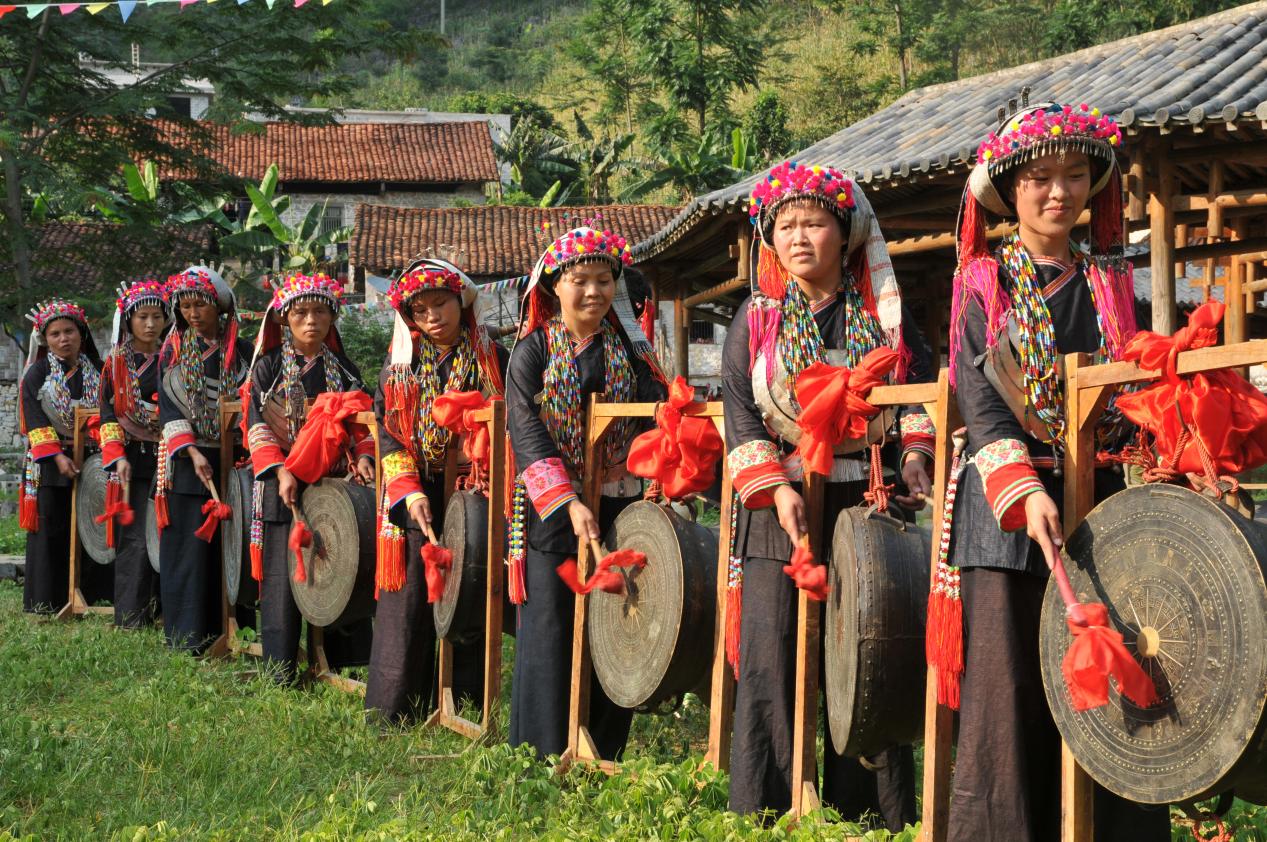
As an important tool for information transmission, the drumbeats should be solemn, powerful, and far-reaching, showing the Zhuang people’s confidence in overcoming toughness. There are two ways to play the drums: double-hammer beating and single-hammer beating. The former is a drummer with one drumstick in each hand beating simultaneously or alternately, whereas the latter is a drummer with only one hammer in his hand. If you listen carefully, it is easy to tell the differences between the two beatings: double-hammer beating produces fast drumbeats and complex rhythm and rotates the drum’s heart tone and edge tone flexibly and freely, while the single-hammer beating makes stronger and more shocking impact forces.
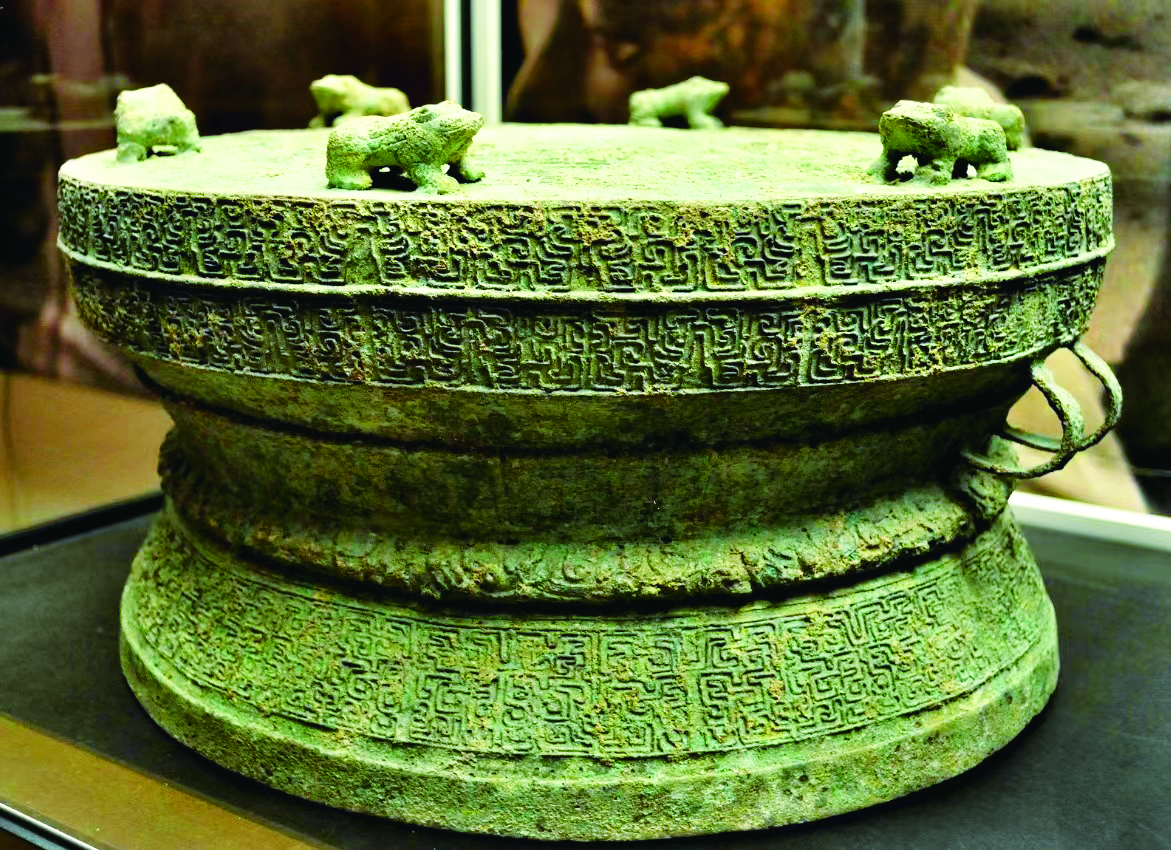
Tips: Copper was once a very expensive high-tech material that could not be used as a daily living appliance for normal people. Thus, having a bronze drum is also a symbol of wealth.
A spiritual home left by ancestors
When it comes to the Bronze Drums Custom, one thing that comes to Zhuang people’s minds is Ma Guai Jie, or Frog Festival, a grand festival that Zhuang people celebrate every year and one of the most representative traditional festivals of Zhuang people. In ancient times, the people lived by planting rice. After realizing frogs were beneficial animals that were good for crops, the ancestors of the Zhuang people respected them and gradually came to worship them. The ceremony was held from the first morning of New Year’s Day to the end of the second day of February. Because of regional differences, the time of the Maguai varies from place to place. In the early morning, Zhuang people sound the drums and gather in groups to search for hibernating frogs. By offering food to frogs, people expect a good harvest in the coming year.
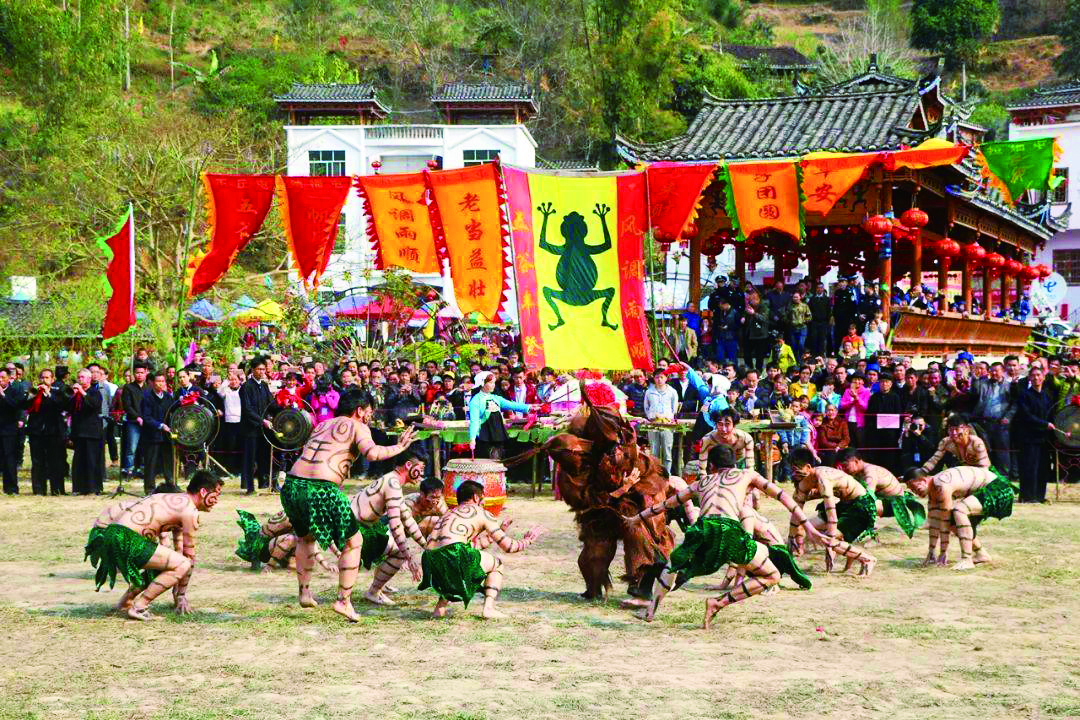
Zhuang people also beat drums on occasions such as funerals and sacrifices to express mourning or celebration. In traditional festivals, such as March 3rd Festival and Spring Festival, they beat drums, play music, and dance to worship their ancestors and pray for good weather, abundant grain, and prosperity for people and animals. They believe that the percussion sound of drums could wash away their pains and troubles and bring them auspicious consolation. Despite the historical changes, Zhuang people’s worship of the bronze drums has never been taken away from their minds and life. In the mind of Zhuang people, it is a spiritual home left by their ancestors.
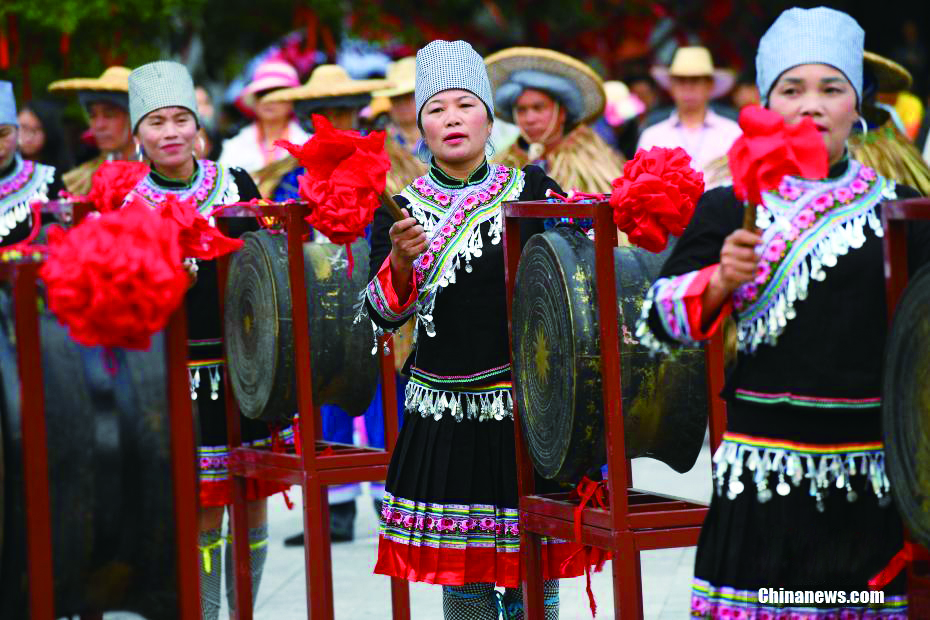
An art more than fine
Unique and mysterious, the bronze drum itself is an exquisite art. The basic shape of the bronze drum is a partly-constricted cylinder without a bottom, resulting in a complementary effect. It is cast from clay, molded in copper, and decorated with the status that shows Zhuang people’s life scenes. According to the locals, each drum has its themes and unique patterns related to various festivals, folk songs, myths, and legends of the Zhuang. Among the bronze drums unearthed, the Beiliu type, Lingshan type, and Lengshuichong type bronze drums, mainly found in Guangxi, have the most mature and extensive application of sculpture art, which has become a major feature of ancient bronze drums in Guangxi.
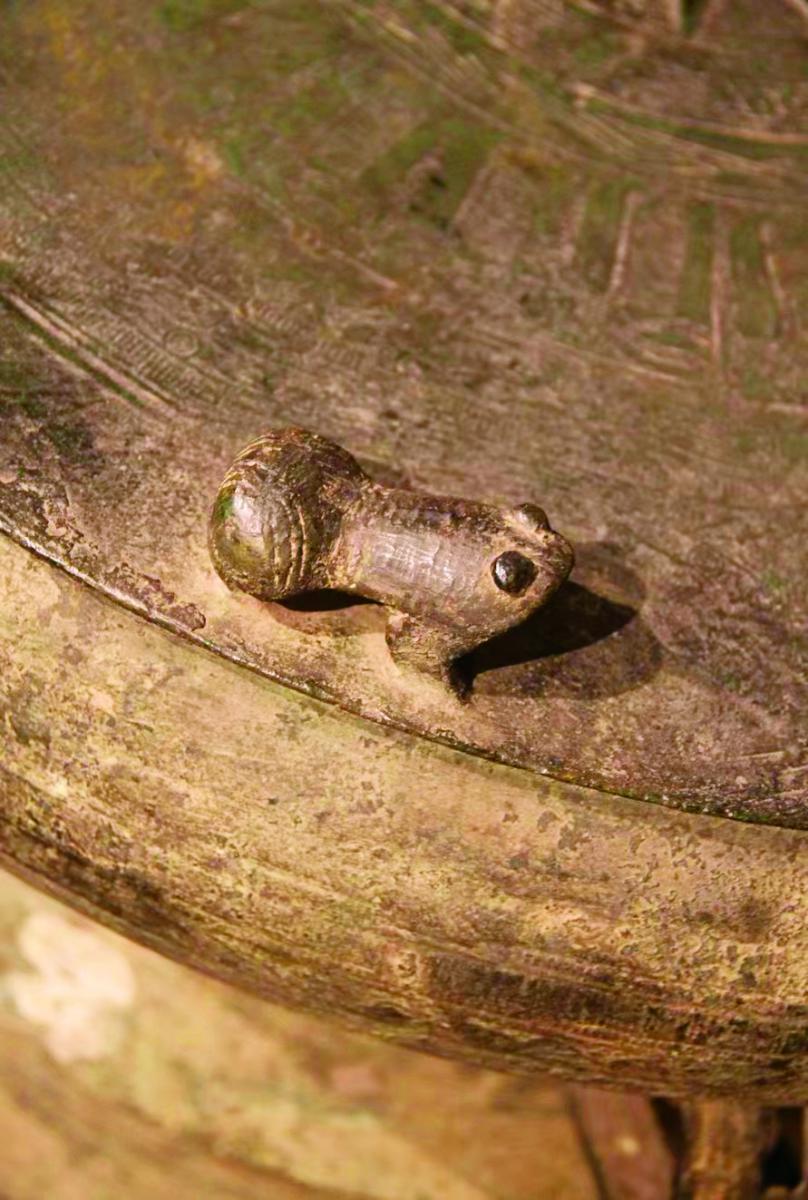
The drum face is the focus of decoration. It is often embossed with a solar pattern that glows at a long sharp angle and is as slender as a needle, expressing the people’s reverence for the sun and their admiration for the center of power. In the peripheral, there are three-dimensional reliefs, in which frogs are one of the most characteristic decorations, followed by knights, turtles, birds, and so on. These images have inspired designers to adorn architecture, fashion, batik, and jewelry, which reflect the aesthetics of Zhuang people and help to better preserve and innovate the bronze drum decoration.
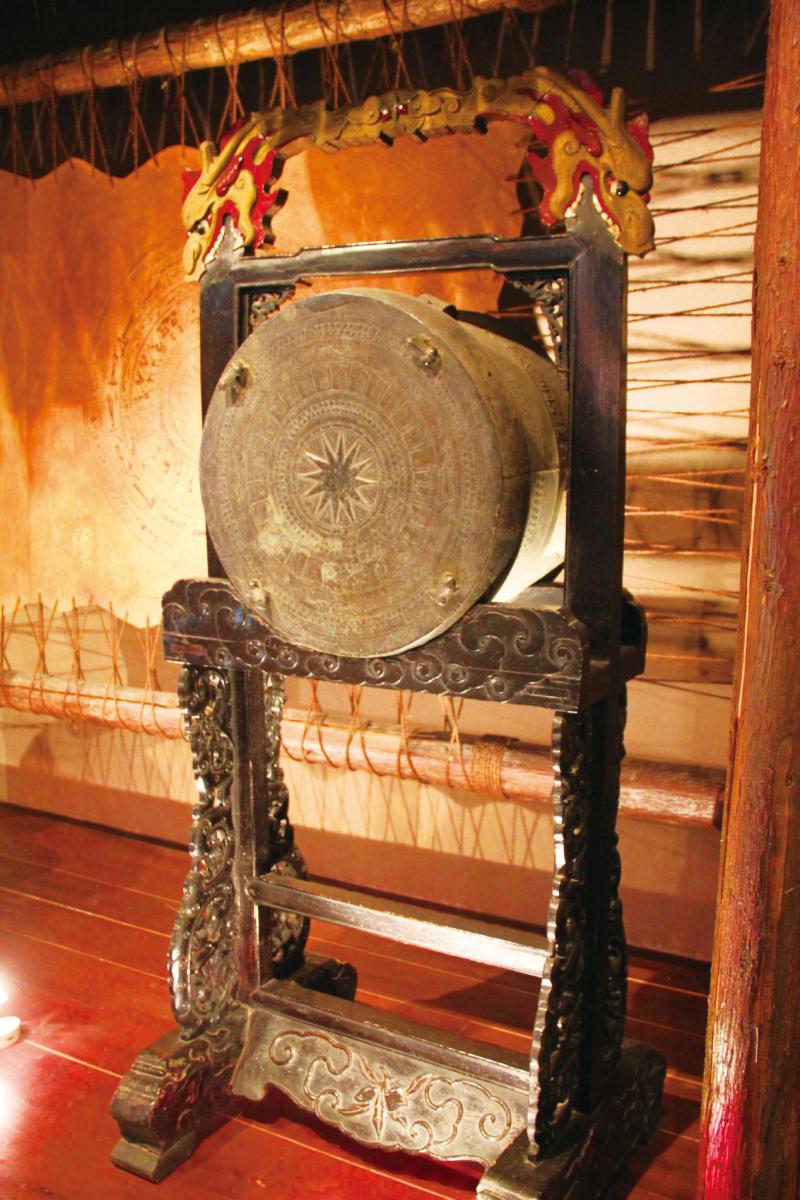
桂ICP备14000177号 Copyright@2006-2013 Guangxi China-ASEAN Panorama Magazine Agency Co., Ltd. All Rights Reserved